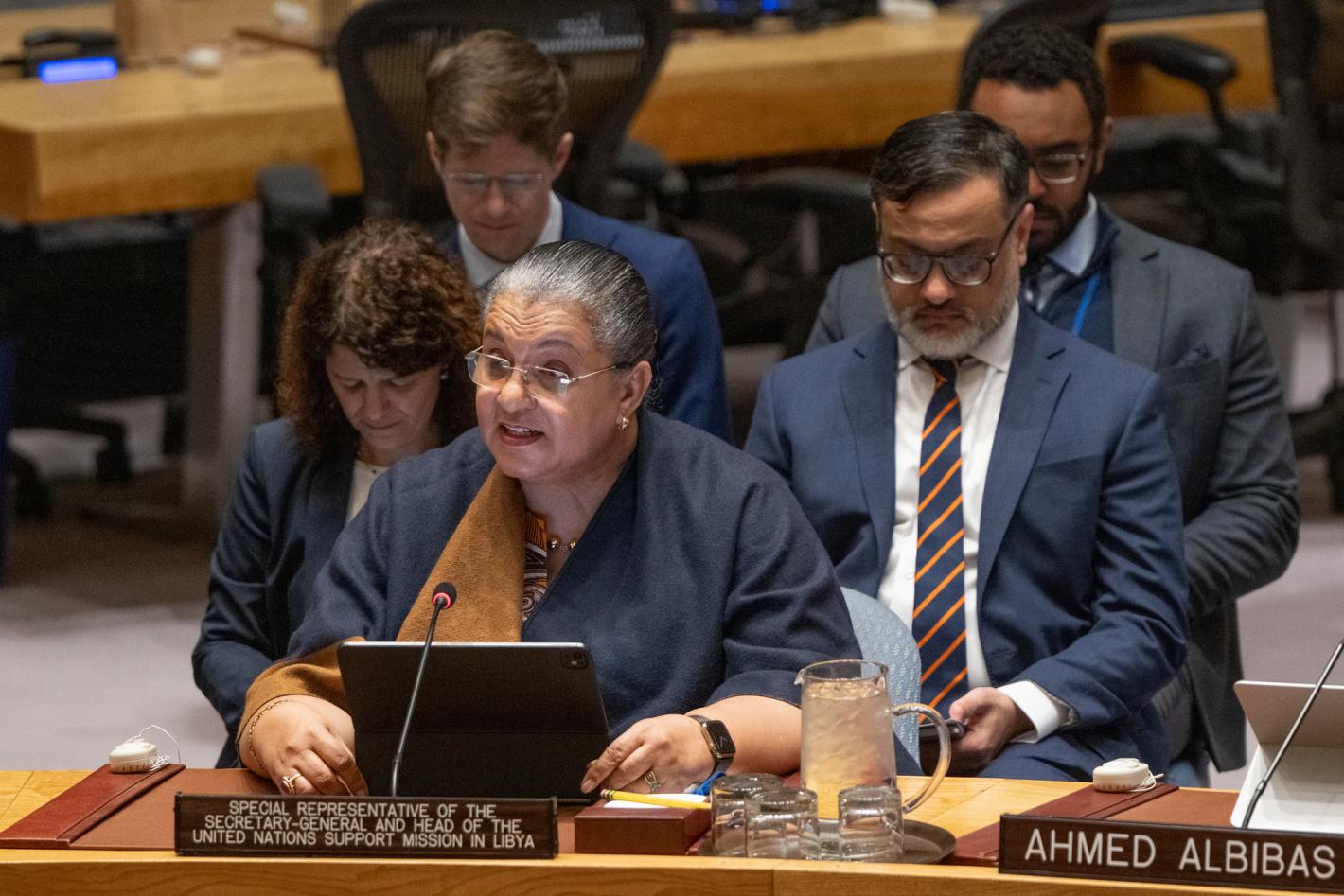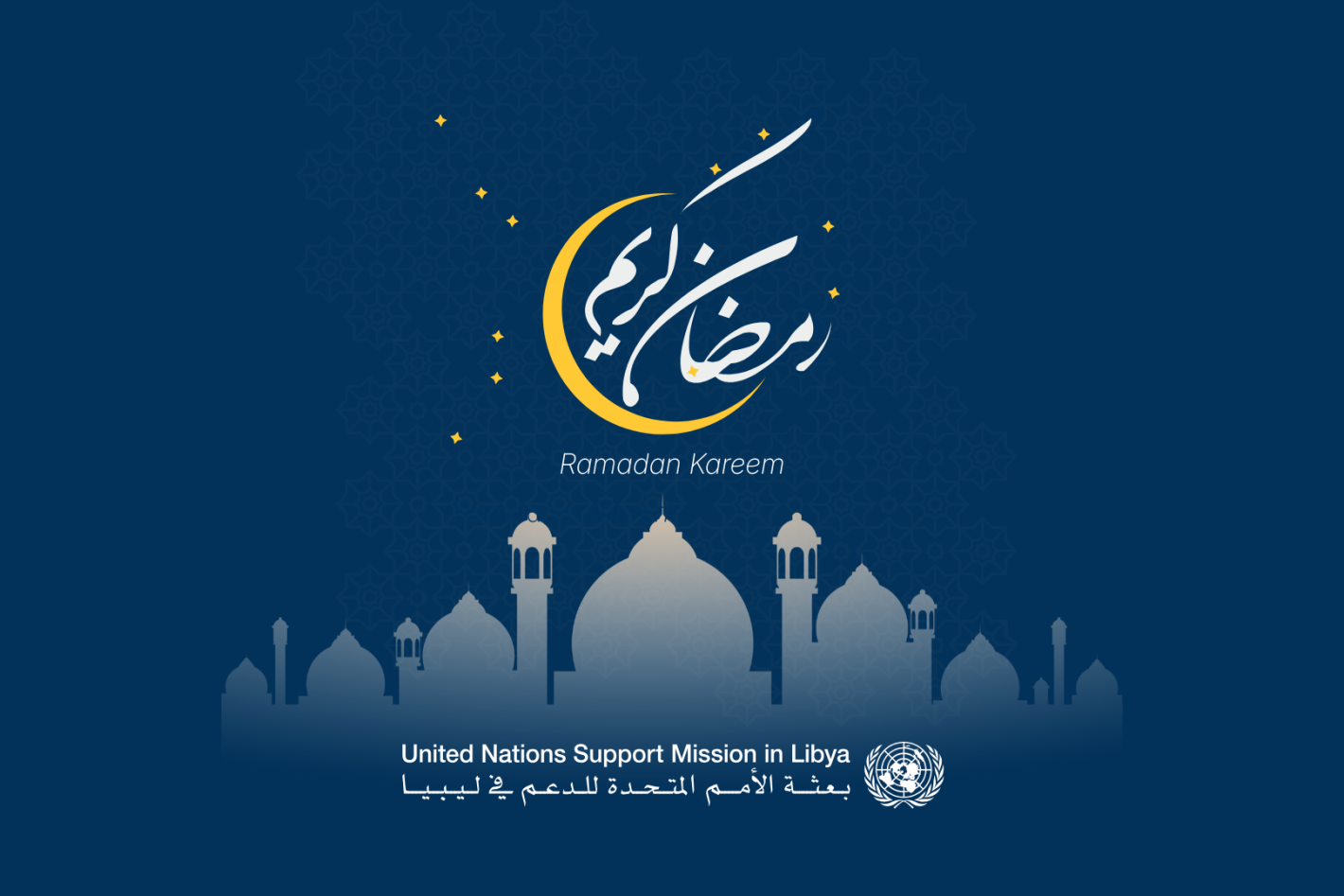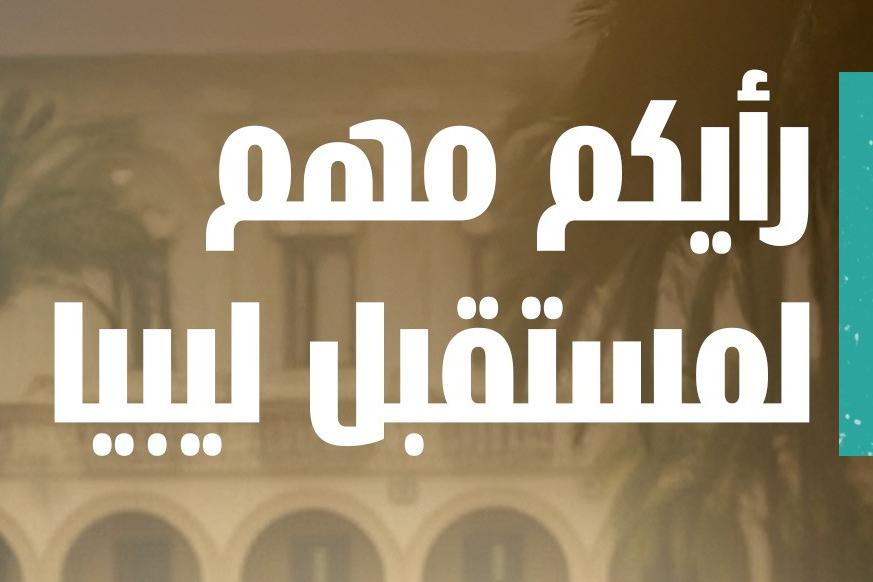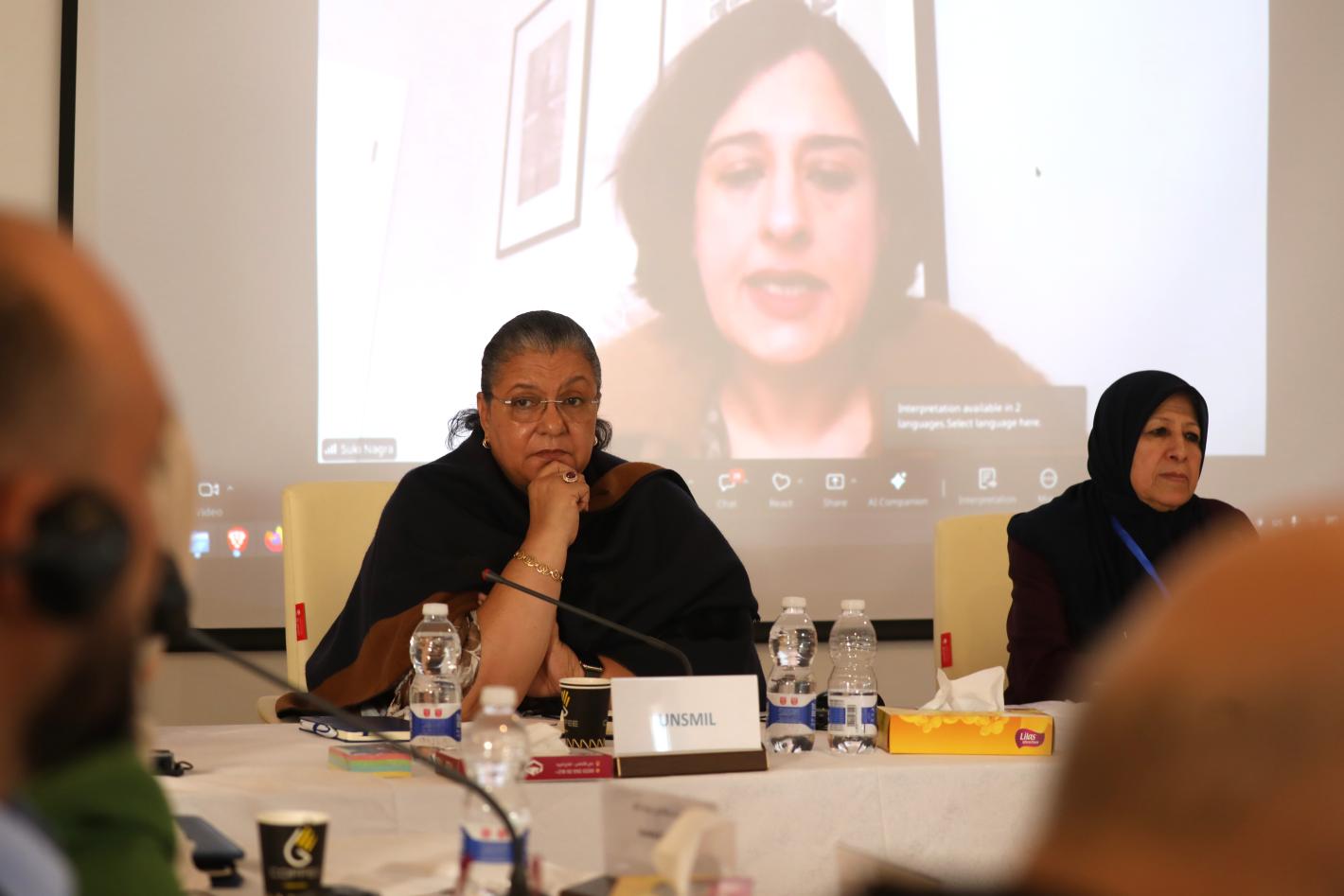طرابلس – ترأس الممثل الخاص للأمين العام للأمم المتحدة في ليبيا اليوم، بالاشتراك مع الجمهورية التركية، أول جلسة عامة تعقدُها داخل الأراضي الليبية مجموعةُ العمل الأمنية المنبثقة عن لجنة المتابعة الدولية التابعة لمسار برلين.
حضر الاجتماع أعضاءُ اللجنة العسكرية المشتركة (5+5)، والأعضاء الآخرون للرئاسة المشتركة، بمن في ذلك سفيرة المملكة المتحدة في ليبيا والممثلة الخاصة للاتحاد الإفريقي، والقائمان بالأعمال في سفارتي فرنسا وإيطاليا، بالإضافة إلى سفراء وممثلي كل من روسيا والجزائر وجمهورية مصر العربية وألمانيا وهولندا وسويسرا ودولة الإمارات العربية المتحدة والاتحاد الأوروبي. وشارك في الاجتماع كذلك ممثلان عن الولايات المتحدة وجامعة الدول العربية عبر وسائل الاتصال المرئي.
وفي كلمته في بداية الاجتماع، عبر الممثل الخاص للأمين العام للأمم المتحدة، السيد عبد الله باتيلي، عن أمله في "أن يشكل هذا الاجتماع باكورة اجتماعات أخرى لمجموعة العمل الأمنية يمكن أن تُعقدَ في مختلف مناطق ليبيا. الأمر الذي سوف يسهم بالتأكيد في الدفع بالعملية السياسية إلى الأمام، وتهيئة الظروف الملائمة لتنظيم انتخابات حرة ونزيهة في 2023، وقبول جميع الأطراف بنتائجها."
وأكد الممثل الخاص بأن تحديات جسيمة لا تزال شاخصة أمام مسيرة ليبيا نحو الانتخابات، بما في ذلك ضمان بيئة آمنة، ومعالجة معضلة التشكيلات المسلحة، والنهوض بالمصالحة الوطنية والعدالة الانتقالية، وحماية حقوق الإنسان والقانون الدولي الإنساني.
وأردف قائلاً، " أعوّل على تعاونكم في تهيئة الظروف الكفيلة بإحقاق السلام والاستقرار في ليبيا. وأحثكم على اغتنام هذ الفرصة لتعزيز ما حققتموه من إنجازات، وتجاوز خلافاتكم."
وفي معرض حديثه عن الحرب الدائرة في الجارة السودان، حذر الممثل الخاص من احتمال استغلال المجموعات المسلحة والإجرامية للكارثة الإنسانية المتنامية في المناطق الحدودية لخدمة مآربهم الشخصية، معرباً عن التضامن مع الشعب السوداني الذي يقاسي من أعمال عنف مروعة، ومطالباً بالوقف الفوري للأعمال العدائية وبإيجاد حل سلمي للأزمة.
ودعا السيد باتيلي المشاركين في الاجتماع إلى "متابعة تطورات الوضع في السودان واتخاذ كل التدابير اللازمة للحؤول دون امتداد آثاره."
وأشاد السيد باتيلي بعمل اللجنة العسكرية المشتركة (5+5) في الجمع بين الأطراف الأمنية والعسكرية الفاعلة سواء في تونس أو طرابلس أو بنغازي إبان الأشهر القليلة الماضية قائلا: "علينا ألا نستهين بالإنجازات المحرزة حتى هذه اللحظة وخصوصاً فيما يتعلق بالدفع قدما بالمشاورات حول انسحاب المقاتلين الأجانب والمرتزقة." ؤأضاف: "هناك زخم حاصل، وسجناء أُطلِق سراحهم، وأُسرٌ تم لم شملها. وهذا لأمر يرفع معنويات المواطنين في ليبيا. لكننا بحاجة لأكثر من هذا. إننا بحاجة لبلد موحد تتكاتف فيه القيادات المدنية والعسكرية في سبيل صون سلامة أراضي البلاد، وبنائها بسواعد أبنائها، ورفع روحهم المعنوية وتطهير قلوب الناس وعقولهم من مشاعر الضغينة وانعدام الثقة."
واعتبر الممثل الخاص أن الانتخابات لن تحل جميع المشاكل في ليبيا، لكنها ستشكل "البوابة المؤدية إلى مستقبل أفضل."
"إنه لمن دواعي سرور بعثة الأمم المتحدة للدعم في ليبيا والشركاء الدوليين أن ترافقكم في مساعيكم هذه"، يضيف السيد باتيلي مؤكدا الالتزام بمواصلة "تقديم مساعدتنا وخبراتنا لتسهيل مهامكم ولضمان الاستماع لأصواتكم من قبل جميع الأطراف المعنية، بمن فيهم القيادات السياسية."
من جانبه، أعرب السفير التركي في ليبيا والرئيس المشارك لمجموعة العمل لهذا الشهر، السيد كنعان يلماز، عن أمله في أن يشكل التئامُ أعضاء مجموعة العمل الأمنية في طرابلس "حلقة أولى من سلسلة اجتماعات عديدة ستجرى في ليبيا، بدل من أن يكون هذا الأمر حالة استثنائية."
واعتبر السيد يلماز أن "كون مجموعة العمل الأمنية قادرة على الاجتماع داخل ليبيا يؤكد التقدم المبهر الذي أحرزته القيادات الوطنية الليبية الحاضرة في هذه القاعة"، معبرا عن امتنانه للممثل الخاص "على إصراره على مناقشة الأمور التي تخص ليبيا داخل ليبيا نفسها."
وانبثقت مجموعة العمل الأمنية عن مسار برلين بشأن ليبيا، وهو عملية متعددة المسارات تيسرها الأمم المتحدة وتمت باستضافة الحكومة الألمانية والبعثة في العام 2020 بهدف التوصل إلى توافق بين الدول الأعضاء المعنية حول الأزمة الليبية وتقديم مظلة دولية لحماية المحادثات الليبية-الليبية بشأن مستقبل البلاد.
وتم تنظيم اجتماع برلين بموجب مشروع الحوار السياسي المشترك بين البعثة وبرنامج الأمم المتحدة الإنمائي.






